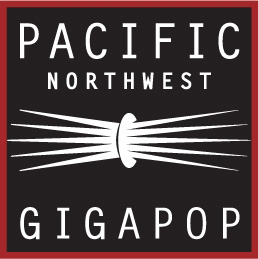NII Demonstrating up to 150Gbit/s Data Transfers Utilizing Pacific Wave
Linz, Austria
As data volumes from experiments like High Energy Physics and Biomedical research accelerate, the demands for ultra-high capacity intercontinental connectivity increases.
However limitations of traditional file transfer protocols (particularly over long distances) are putting significant constraints on the ability of networks to support the needs of advanced research.
Japan's National Institute of Informatics, NII, are demonstrating at TNC17 the latest solution to this problem -Massively Multi-Connection File Transfer Protocol (MMCFTP). MMCFTP allows files to be split and sent across multiple connections (either sessions on the same link or indeed across multiple links) to increase the throughput.
MMCFTP - How it works
Within the TCP/IP protocol, data is only sent after an acknowledgment is received in order to confirm that each packet being sent is correct. Over long distances, it takes a long time for the confirmation of each sending packet to arrive.
As a result, the data transfer speed for large amounts of data decreases drastically. Massively Multi-Connection File Transfer Protocol (MMCFTP), developed by NII for transferring big data in the interest of international cooperation of science and technology, is one of the world's fastest protocols for transferring data over long distances.
In MMCFTP, the high-speed data transfer of massive amounts of data is done by splitting the data file, creating multiple connections simultaneously, balancing the amount that is sent over each connection, and controlling the number of connections dynamically according to network conditions.
NII High Speed Data Demonstration
NII has installed two Data Transfer Nodes (DTNs) one in Tokyo and the other at GÉANT's London West POP. Each is equipped with two 100Gbit/s interfaces and the test files will be transmitted across both interfaces simultaneously. The connections from London to Tokyo will be using two separate connections. The first through Seattle and Montreal via JGN, WIDE, TransPAC, Pacific Wave, CANARIE, ANA-300 (a link operated by CANARIE/NORDUnet/SURFnet) and SURFnet; the second through Los Angeles and New York via JGN, SINET, Pacific Wave, Internet2, and NEAAR to GÉANT. Each of the 100Gbit/s North American routes has a path length of over 17,000Km
These separate geographically distributed connections will be combined using MMCFTP to provide extremely high speed data transfer between the two DTNs.
This demonstration is a follow-up from the MMCFTP demonstration at SC16 in Salt Lake City, Utah where a data rate of 150Gbit/s was achieved over a path length of approximately 7,00Km.
At TNC17, the target transfer rate was to at least reach 120Gbit/s (maximum 150Gbit/s) between Japan and EU. he results showed a speed of up to 131.4Gbit/s for Memory to Memory (M2M) transfer and 97Gbit/s for Disk to Disk (D2D) this D2D rate is a world record for an intercontinental data transfer between Asia and EU. The use of two separate routes provided an additional challenge to MMCFTP in this demonstration.
Such results not only enable advanced research projects but demonstrate the ability of file transfers to transcend the limitations of network bandwidth.
Summary Results
For more information please visit the GÉANT booth at TNC or view the NII poster presentation.



